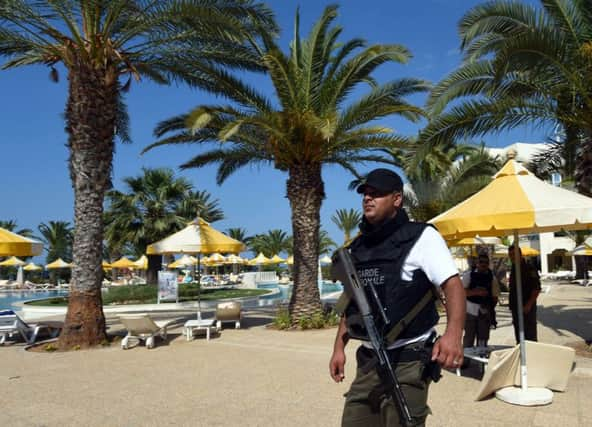Leaders: Terror impossible to stop – but we must try


The UK government’s emergency Cobra group was swiftly convened, and David Cameron announced: “We have got to do all we can to help.” The Prime Minister added: “That means co-operating on counter-terrorism, building our capacity on counter-terrorism, it means dealing with the threat at source whether that is Isil [also known as Islamic State] in Syria and Iraq or whether it is other extremist groups around the world.”
If there is a sense of helplessness today, it is because while Mr Cameron is saying the right things, we have heard these words before, and still the terrorist attacks come. There has been co-operation on counter-terrorism on a scale never before seen. And we know that the threat must be dealt with at source. It’s been tried, with varying degrees of success or failure.
Advertisement
Hide AdAdvertisement
Hide AdUltimately, it is impossible to eradicate attacks of the type which happened yesterday. If people never previously on the security services’ radar are hell-bent on carnage, no detectable communication devices are required. All they need are weapons and a target, and in a country like Tunisia with vast borders that cannot be policed, guns are not hard to get hold of.
The big apparatus of state is virtually powerless against a basic, unsophisticated attack. What, then, does a country such as Tunisia do to thwart terrorists who have now struck twice in just four months, and have probably destroyed the country’s tourism industry at the same time as taking dozens of lives? Put guards at every hotel, and on every beach? If tourism is to survive – an industry which contributes hugely to the Tunisian economy – should the government invest in patrols to help allay fears? In truth, even this kind of measure in place round the clock and across the country would not deter the terrorists. The target would simply move elsewhere.
The same cold reality applies to the suicide bombing in Kuwait and the beheading in Lyon. These attacks could happen anywhere terrorists choose, and no-one needs reminding an attempted beheading has already taken place on a British street.
Mr Cameron’s call that countries must do all they can to help is a determination most likely shared around the world. But terrorism goes way beyond the conventional threat posed by enemies. How do we combat a mentality that will take a life in any circumstance and at any price? It is the biggest challenge currently posed to the security of the civilised world.
Even a solution is not the end for Greece
AFTER weeks of uncertainty, a solution to the Greek crisis appears to be close.
We are told that “the difference [between the Greek government and its creditors] now is very, very small” and there is a possibility that agreement could be reached today – although this stand-off has endured far beyond what was originally thought possible, so nothing should be taken for granted even at this more optimistic stage. Greece could just as easily default next week.
It would be premature to celebrate if a deal is announced, however. The immediate question to follow would be how long any arrangement could last. Greece has been on the brink before, pulled back, and then ended up on the brink again. There is little reason to be confident that this will not happen again.
Efforts should focus on what can be done to secure the situation long-term, and bring about the stability that both sides require.
Advertisement
Hide AdAdvertisement
Hide AdGreece remains in a strong position in negotiations, with its creditors reluctant to force the issue and risk the damaging consequences of losing an EU member. With that in mind, it would be wise for member states to recognise that they are not able to control this situation, and should therefore continue to prepare for a Greek exit, which would minimise the impact of a departure in future.
It is not possible to predict if those preparations will ever have to be put into action, but it is reasonable to assume that whatever compromise it might be possible to reach this time is unlikely to represent the end of this matter.